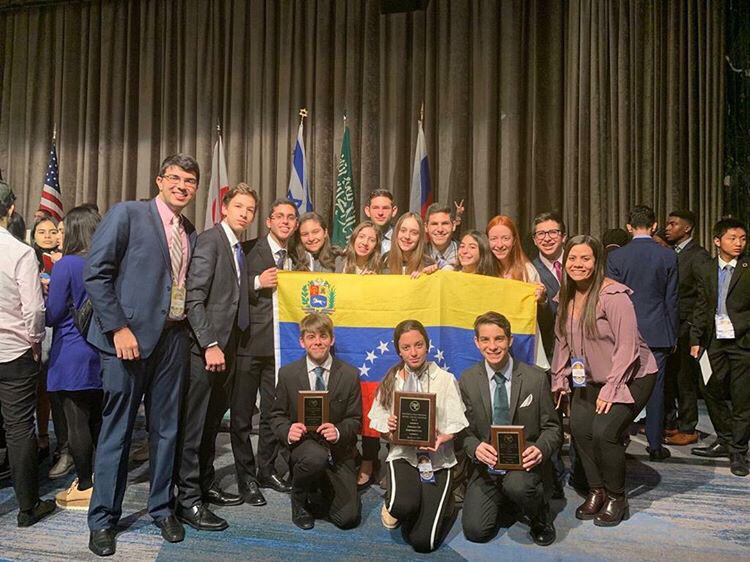Lights Out in Venezuela
Everything You Need to Know About the Venezuelan Crisis
Students from Colegio Moral y Luces Herzl-Bialik in Venezuela attend the National High School Model UN (NHSMUN) conference at the New York Hilton Midtown.
Breaking world news at an alarming rate, Venezuela has reached a level of humanitarian crisis thought to surpass even Syria in recent weeks. From drastic food shortages to widespread power outages, Venezuela is in dire need of humanitarian aid and a quick fix to its administrative problems.
Former President Hugo Chávez (2002-2013) led the country into a period of unparalleled success after taking advantage of the nation’s vast oil supply. Turning out oil revenues in the tens of billions of dollars, Chávez was able to turn Venezuela into Latin America’s richest country. However, his replacement, Nicolás Maduro, quickly undid this progress, and the country has since developed crises in every level of society as the economy has collapsed.
Great indicators of corruption have further led opposition groups to denounce the current administration’s power following Maduro’s alleged re-election. Opponent Juan Guaidó has gone as far as to declare himself interim (temporary) president of Venezuela, with over fifty nations recognizing him as the country’s legitimate leader. This includes many neighboring Latin American nations as well as the United States, which Maduro has come to blame for many of Venezuela’s recent problems, including a long-lasting national power outage.
Today, the situation in Venezuela is in critical need of a solution. By United States estimates, three million people have been displaced in the region, and the number is expected to rise to 5.3 million by the end of 2019. At this point, 90% of the population is living below the poverty line, and over 50% of Venezuelans cannot meet basic food needs. Furthermore, the infant mortality rate has risen drastically, and the impact on lives is only going to grow as 13,000 doctors have left the country in the past four years, and more are likely to follow.
All of these statistics indicate growing government disapproval among the Venezuelan people, yet the impacts are more than just numbers. “We just want standard human rights to apply in Venezuela, and we just want democracy,” said Daniel Mishkin, a Venezuelan student at Colegio Moral y Luces Herzl-Bialik who attended a Model United Nations conference at the New York Hilton Midtown alongside the SciMUN delegation. Mishkin is privileged to have enough food for himself and his family, yet he witnesses tragedy every day as he watches those around him sift through garbage in search for something to eat. “The Maduro regime is very unpopular. They have violated our constitution, and they have absolutely undermined any aspect of democracy,” said Mishkin. “I won’t see them going down easily, I don’t think they’re willing to…. they are definitely not going down without a fight.”
While the government may be reluctant to let go of its power, Venezuelans have become fed up, and Maduro’s regime faces a growing threat in the form of Guaidó’s opposition government. With significant international support, Guaidó is bringing Venezuela closer to a transition government that would aim to solve Venezuela’s problems instead of perpetrating them.
Today, a simple Google search of Venezuela will bring about waves of recent news articles with a variety of startling headlines. From a week-long power outage to drastic conditions becoming even worse in the health and water sectors, these past few months have shown Venezuela declining at unprecedented rates in spite of Guaidó’s emergence in January. Though it has recently been lights out in Venezuela, let us hope that a solution soon lights up the nation once more.
Celeste Abourjeili is the Editor-in-Chief of ‘The Science Survey.’ She has a passion for journalistic writing because it gives voice to all groups...











